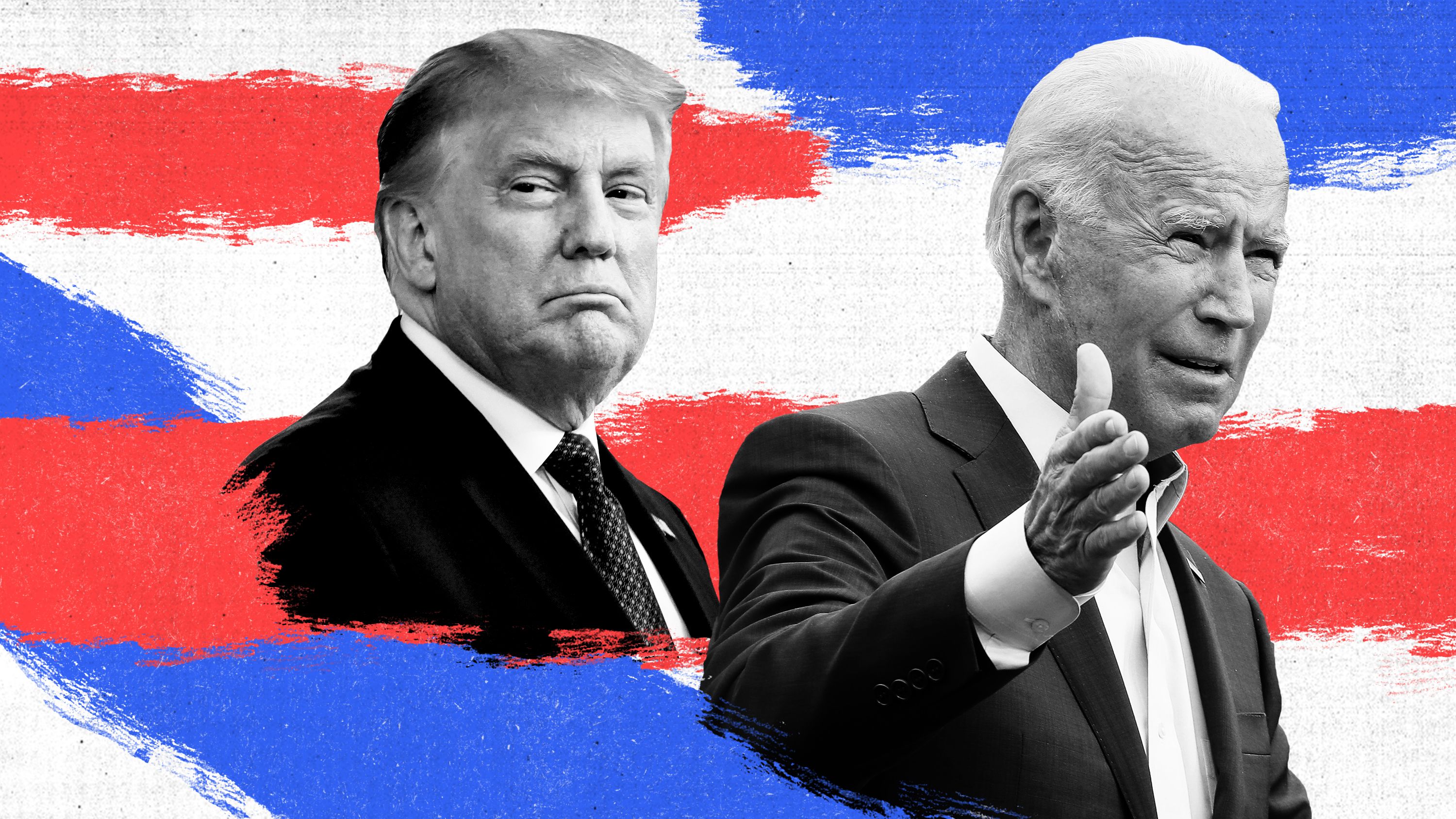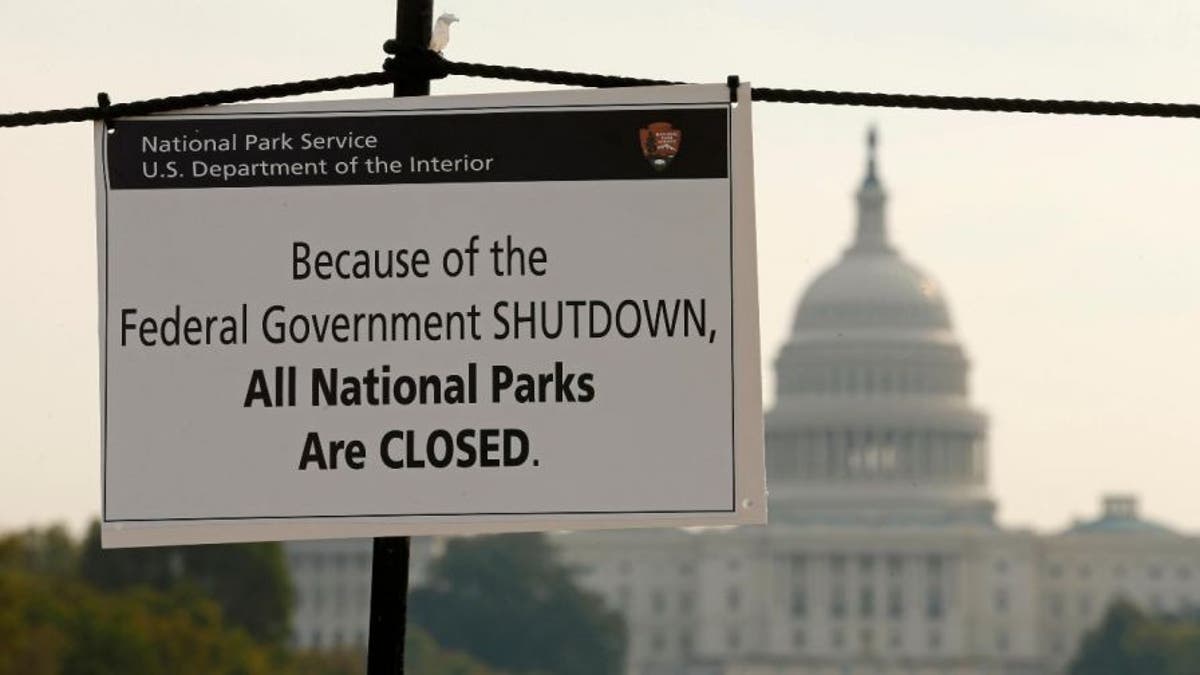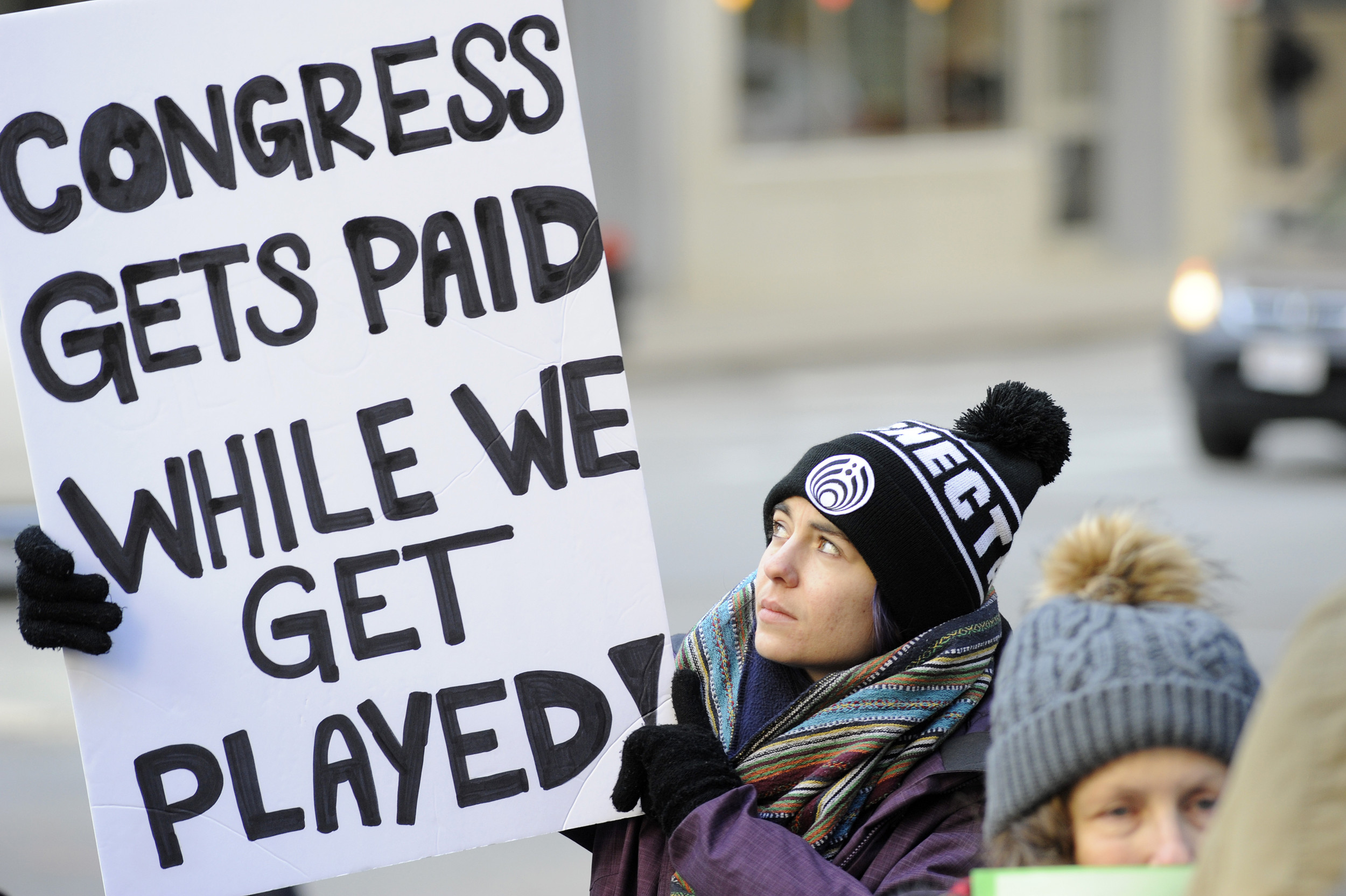Countdown For Shutdown: A Grave Narrative Of Government Lapses On Common Citizens!
It is hard to forecast the length of a shutdown. Many are ready for a shutdown that may last weeks, with Congress divided between a Democratic-controlled Senate and a Republican-led House, with Speaker Kevin McCarthy's hard-right conservatives planning to use this shutdown a leverage for budget cutbacks.

‘Every time is not the same’; this adage seems to be true in the context of America. The once-designated superpower is on the way to a government shutdown at the start of October. The federal government is on the verge of a shutdown, interrupting a plethora of services, straining workers, and roil politics because Republicans in the House are pursuing a showdown over federal spending, fuelled by hard-right demands for massive cutbacks. With House Speaker Kevin McCarthy’s most recent funding scheme in trash and lawmakers leaving town for the weekend, there’s no conclusion because hard-right Republicans drive the country perilously near to a federal shutdown.
McCarthy is under intense pressure from a small group of hard-right conservatives in his caucus to slash spending drastically, thereby impeding his power to lead the chamber. Many on the right side support Donald Trump, the Republican frontrunner to take on Biden in the 2024 race. They are working to undo the budget agreement negotiated by the speaker and Biden earlier this year.

The U.S. has experienced 21 gaps in government funding since 1976, leading to varying degrees of disruption. Under the worst scenario, the White House is warily looking at a repeat of 2018, the lengthiest and most recent shutdown, which laid off roughly 800,000 of the federal government’s 2.1 million employees for 34 days.
It is hard to forecast the length of a shutdown. Many are ready for a shutdown that may last weeks, with Congress divided between a Democratic-controlled Senate and a Republican-led House, with Speaker Kevin McCarthy’s hard-right conservatives planning to use this shutdown a leverage for budget cutbacks.
President Joe Biden has quickly blamed the impending shutdown on House Republicans, who are determined to go beyond the budget cuts outlined in a June agreement that postponed the legal limit on federal borrowing ability until early 2025. As per White House press secretary Karine Jean-Pierre, if federal workers go underpaid, it will be Republicans’ accountability.
What is a shutdown?
A government shutdown denotes a suspension of many government functions until Congress works to restore funding.
Impact on workers of the nation– For hundreds of thousands of federal staff, that means either being laid off while the government is closed or continuing to work without pay.
Impact on citizens of the nation– For the public, this refers to dealing with interruptions to a myriad of government services and facing a bunch of problems and disruptions to daily life.
Impact on Tourism– National park and museum closures are often on the list of the most apparent effects of a government shutdown for the public. In rare circumstances, they can result in notable losses for tourism-dependent towns.

Halt on industrial operations– Inspections at chemical companies, power plants, and water treatment plants came to a standstill during the most recent shutdown when the Environmental Protection Agency furloughed thousands of employees. The FDA discontinued regular food safety inspections of fish, fruits, and vegetables, placing further strain on restaurants and stores. Furthermore, during protracted shutdowns, several government labs and research programmes are shut, impeding scientific progress.
How will it impact humanity? In recent days, the White House has highlighted many government programmes that, if discontinued, may lead to more serious problems, including nutrition and immunization delivered under the Special Supplemental Nutrition Programme for Women, Infants, and Children. The White House has stated that if this funding is not provided, over seven million women and children would lose crucial access to food, and the federal contingency fund to keep the programme going will run barren within a few days. Isn’t it disgusting how society’s weaker and dependables pay the most in governance lapse or failure cases?
What services would be maintained?
Many entities whose personnel provide crucial services do not shut down. This includes several federal prosecutors and investigators, postal workers and Transportation Security Administration staff. Most of those workers will continue to labour without pay until funding is restored. Some may work in roles that are supported outside of the yearly appropriations process in rare situations.

Medicare and Social Security benefits likewise endure indefinitely since they are authorized by Congress under separate laws that do not need to be renewed each year. Medical treatment for veterans is unaffected. Even if government employees continue on the job, planning and operations that support them may be stopped, making the task hard. For example, while air traffic controllers generally stay functioning, new employee training would be suspended, increasing shortages.
However, the workers are furloughed, but Congress is paid during the shutdown!
Members of Congress receive different pay from most federal government staff, as mentioned in Section 6, Article I of the Constitution. It cites that the senators and their representatives will get compensation for the services, to be ascertained by the law and paid out of the Treasury of the US. The people responsible for the shutdown, the people in power, will get paid, but the workers of the country who are running the economy will suffer! That’s the saddest aspect of a democracy.
Furthermore, per the language of the 27th Amendment, which prohibits any law “varying any compensation for the services of senators and representatives” until the next election, it is generally interpreted as a constitutional need that lawmakers be paid on time.
Like federal agencies, lawmakers have limited discretion to keep staff members functioning in cases where their role is directly related to human health and safety. This denotes only staff members whose job is required to help Congress with the constitutional responsibilities or those needed to protect life and property, as per the Congressional Research Service.

Will furloughed employees get compensated in the end?
Employees who have been furloughed during the shutdown will be paid whenever Congress approves and the president signs a new appropriations bill or a continuing resolution. Employees who worked overtime or received other forms of premium pay can usually recover that additional compensation once the shutdown is finished. But what will they do, or how will they cope if the shutdown continues? It’s a smack in the face of the government!
In addition to the 4 million federal employees who would not be paid if the government shutdown happens, millions more contractors would have their pay delayed and may be fired off. Then, there will be a knock-on impact on firms that rely on federal personnel and contractors. In addition, unlike full-time government employees, contractors sometimes do not receive back pay even once a shutdown ends.
Some real scenes of sorrow from the ground level.
The politicians aren’t thinking about people on the ground floor doing the work, said Stephen Booth, a local liaison for the American Federation of Government Employees, a union of federal workers. Some people live paycheck to paycheck. The government take away a paycheck; how are they going to live for the next two weeks? How can they take care of the kids? How will they take care of the spouse? That type of mindset results in causing bad things to go through a few people’s minds, and few folks can’t get through it.
Jessica LaPointe, a single mother of four who offers services as a claims specialist for the Social Security Administration in Madison, Wisconsin, realizes she will have to rely on friends and family for assistance if the government shuts down. It’s not horrible for her as she’ll get compensated eventually, who is also her local union council president. Because there is a light there, it only passes through in the short term. However, the ambiguity is a source of anxiety.
According to retired Air Force Lt. Gen. Brian Kelly, president of the Military Officers Association of America, a salary freeze would strain military families, who frequently live paycheck to paycheck. He stated that his organization’s members are becoming concerned about the consequences of a closure. They make a lot of sacrifices with deployments, perhaps combat, and a number of other things, and they’re eager to do so. However, they expect that the system will reciprocate their effort and sacrifice. When they don’t see it, it throws a lot of things into question.
Union president Steve Reaves of the Federal Emergency Management Agency expressed concern about morale among his colleagues, who are already stressed from responding to increasing weather-related catastrophes. During the previous shutdown, he had to use his retirement funds to pay his mortgage. They had a brain drain the last time there was a shutdown when everyone dropped their retirement papers, and many individuals departed. So they had a substantial loss the last time, according to Reaves. He’d think that if this was a long enough period, they’d have it again. They’re talking about the long-term effects on planning and disaster management.
The hope of positivity and optimism for survival.
“It’s really rice and beans time,” mentions Amad Ali, a claims specialist working with the Social Security Administration in New Albany, Indiana, and president of his local AFGE union. Most of them are dedicated civil servants, and they keep on doing it; they keep on pushing forward, but definitely, it’s tough. Ali, a veteran of the Iraq War who has been connected with the Social Security Administration since 2008, mentioned that he’s learned to act for the possibility of living weeks without pay. Despite three kudos in middle school and college in the family, he thinks he will make it to scrape by again during this shutdown.
This kind of discipline and optimism amid anticipated shutdown is definitely expected from a war veteran; indeed, said someone, once a spartan, always a spartan!
Some expert opinions.
The shutdown comes at a tough time for many people, who are already battling with continuous inflation, which has driven up the cost of rent, child care, groceries, transportation, and utilities. Simultaneously, a slew of Covid-era benefits have expired, including the child tax credit, housing aid, and the freeze on student loan payments, which will now begin in October. Over the last year, households have spent down their savings and increased their credit card bills to compensate.
While unemployment has remained historically low, experts warn that a government shutdown lasting more than a month, an extending UAW strike, consumer pressure from inflation, and rising interest rates might weigh on the broader U.S. economy.
:quality(70)/cloudfront-us-east-1.images.arcpublishing.com/archetype/DX4G5D43CNB6DC4HGLDUBYXTPA.jpg)
If the shutdown is only a couple of weeks, it’s ok. After a month, it begins to influence economic statistics. Longer than that, it becomes a severe issue, and if it lasts the entire quarter, brace for a recession. Suppose the shutdown continues until the end of the year. In that case, it may be enough to push the United States into a recession, according to Mark Zandi, chief economist of Moody’s Analytics.
The relief plans.
Food banks in the entire country are preparing for an influx of government workers needing aid amid the shutdown. According to Radha Muthiah, CEO of Capital Area Food Bank, which serves residents of Washington, D.C., and the neighbouring suburbs in Maryland and Virginia, 100,000 federal workers in the area may struggle to afford food during a shutdown due to their incomes and the high cost of living in the Washington region.
During the previous shutdown, the food bank distributed meal boxes to around 4,000 homes each week at temporary facilities in grocery store parking lots designated for government workers. They saw an increase in demand at the food banks with whom they collaborate in the area. A closure would occur at a time when the organization’s demand is already much beyond pre-pandemic levels.
According to an Agriculture Department representative, federal food help through the Supplemental Nutrition Assistance Programme, traditionally called food stamps, will be given to recipients in October. However, it is unclear what would happen with benefits if the shutdown lasts more than 30 days, which may even burden food banks.
/cloudfront-us-east-1.images.arcpublishing.com/gray/6GEN55Y3AFOM7GCNLWTCH6LV3A.jpg)
Is the current U.S. shutdown more serious than others-The bottom line!
While Washington has seen shutdowns, this one may have more consequences since it would include far more people than the earlier shutdown, according to Max Stier (head of the nonprofit Partnership for Public Service). Congress has not authorized money for elements of the government, nor has it enacted legislation to keep military personnel paid. Let’s see how the superpower country copes with this super-critical situation! Will the government find a way to stabilize the economy, or the great U.S. economy will suffer from the atrocities of government lapses and conflicts?




